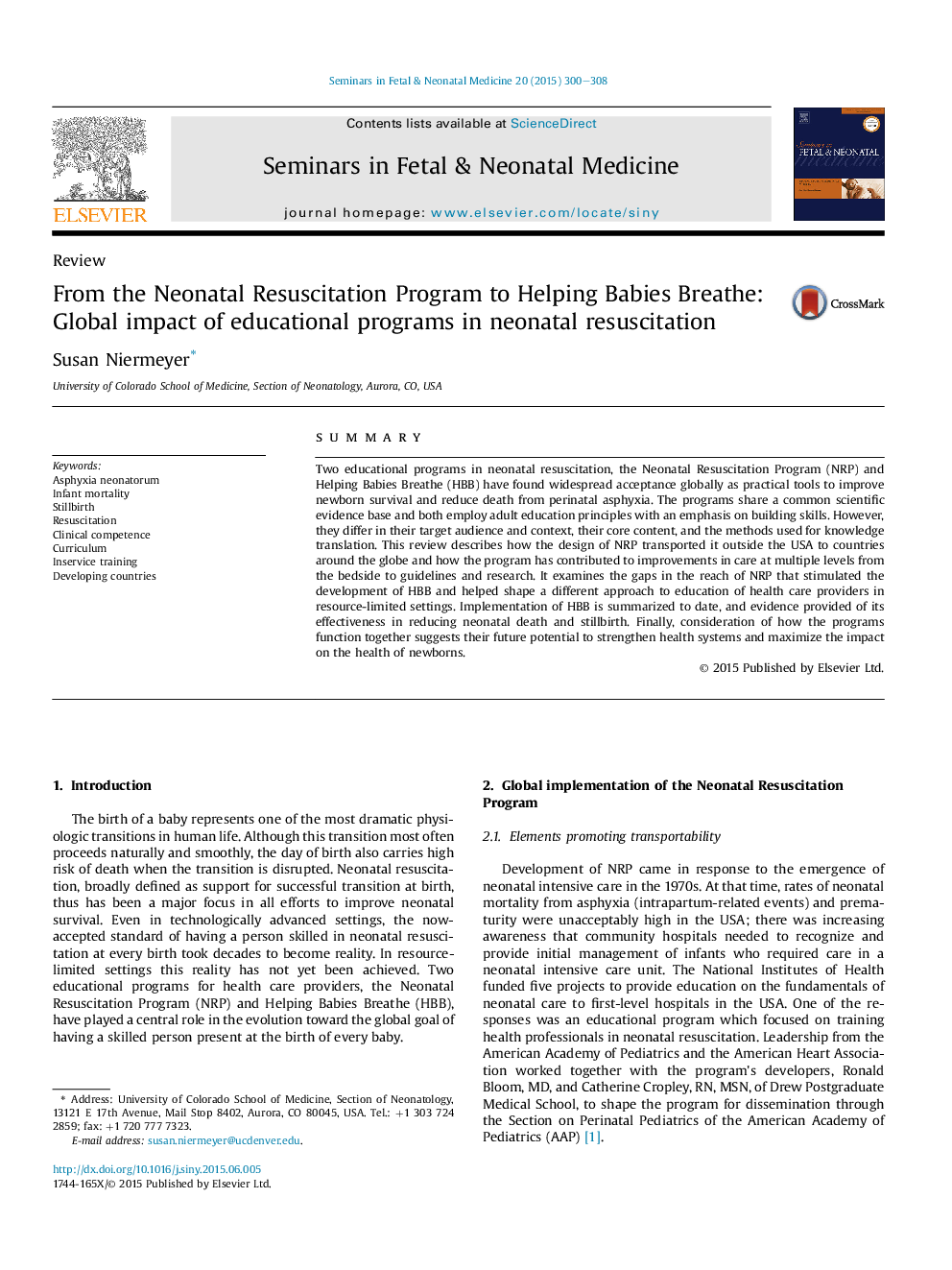| Article ID | Journal | Published Year | Pages | File Type |
|---|---|---|---|---|
| 3974001 | Seminars in Fetal and Neonatal Medicine | 2015 | 9 Pages |
SummaryTwo educational programs in neonatal resuscitation, the Neonatal Resuscitation Program (NRP) and Helping Babies Breathe (HBB) have found widespread acceptance globally as practical tools to improve newborn survival and reduce death from perinatal asphyxia. The programs share a common scientific evidence base and both employ adult education principles with an emphasis on building skills. However, they differ in their target audience and context, their core content, and the methods used for knowledge translation. This review describes how the design of NRP transported it outside the USA to countries around the globe and how the program has contributed to improvements in care at multiple levels from the bedside to guidelines and research. It examines the gaps in the reach of NRP that stimulated the development of HBB and helped shape a different approach to education of health care providers in resource-limited settings. Implementation of HBB is summarized to date, and evidence provided of its effectiveness in reducing neonatal death and stillbirth. Finally, consideration of how the programs function together suggests their future potential to strengthen health systems and maximize the impact on the health of newborns.
